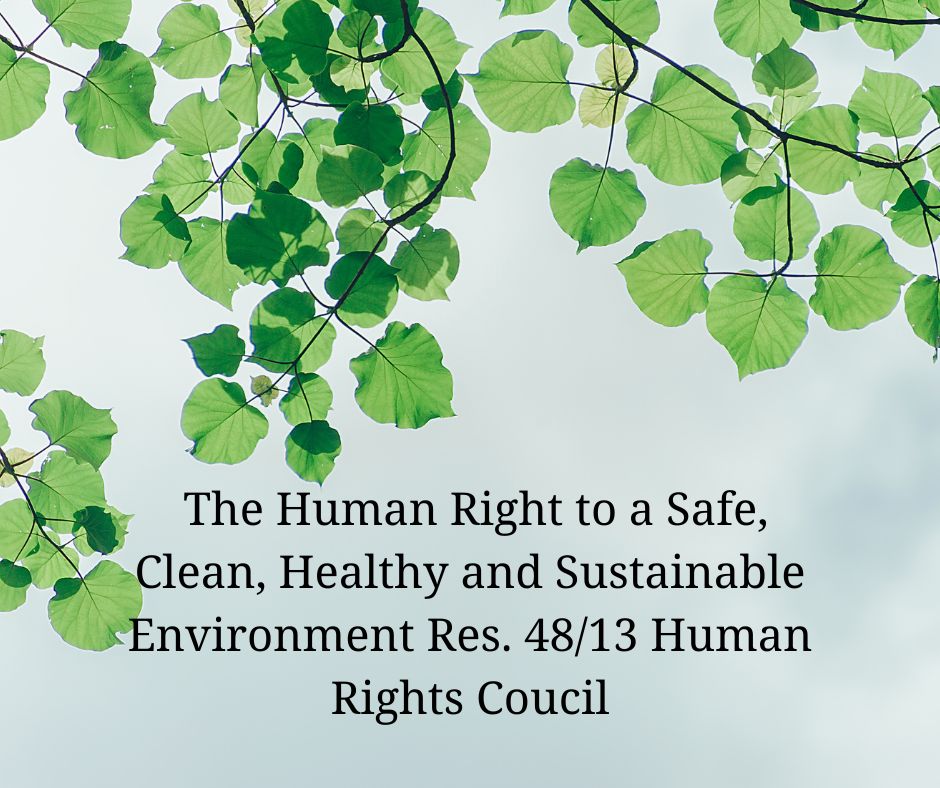
Two Historical Resolution
The United Nation Human Rights Council, on 8 October 2021, approved two historical
resolutions Res. 48/13 and Res. 48/14 about the relationship between Human Rights and
the environment.
- Resolution 48/13 “ The link between Human rights and climate change ”
Resolution 48/13 recognizes for the first time “ the human right to a safe, clean, healthy and
sustainable environment”. The Human Rights Council after recalling all the relevant
international law, particularly the Agenda 2030, underlined the correlation between the three
dimensions of sustainability: social, economic, and environmental. Based on this statement,
the Council recognized that the protection of the environment, including ecosystems,
contribute to and promote human well-being and the enjoyment of human rights, including
the rights to life, to the enjoyment of the highest attainable standard of physical and mental
health, to an adequate standard of living, to adequate food, to housing, to safe drinking
water and sanitation and participation in cultural life, for present and future generations.
The Council recognizes also that, conversely, the impact of climate change, interferes with
the enjoyment of a safe, clean, healthy, and sustainable environment, and that
environmental damage has negative implications, both direct and indirect, for the effective
enjoyment of all human rights. Moreover, climate change consequences are felt most
acutely by those segments of the population that are already in vulnerable situations,
including indigenous peoples, older persons, persons with disabilities, and women and girls,
- The state obligation
The Council underlines that States must respect, protect and promote human rights,
including in all actions undertaken to address environmental challenges, and that additional
measures should be taken for those who are particularly vulnerable to environmental harm. - Resolution. 48/14 The New Special Rapporteur
Considering the complexity of this phenomenon, the Council appoints a specific Special
Rapporteur on the issue of human rights obligations relating to the enjoyment of a safe,
clean, healthy, and sustainable environment. The Special Rapporteur will have a three years
mandate. - Conclusion
These resolutions are historical and create the basis for a new approach in addressing
climate change and its negative implications on human rights. What will happen in the
future? What could be the juridical consequences of this statement? Doubtless, recognizing
the enjoyment of a safe, clean, healthy, and sustainable environment as a Human right is an
important milestone that will pave the way to a new interpretation of relevant international
law.

Leave a Reply